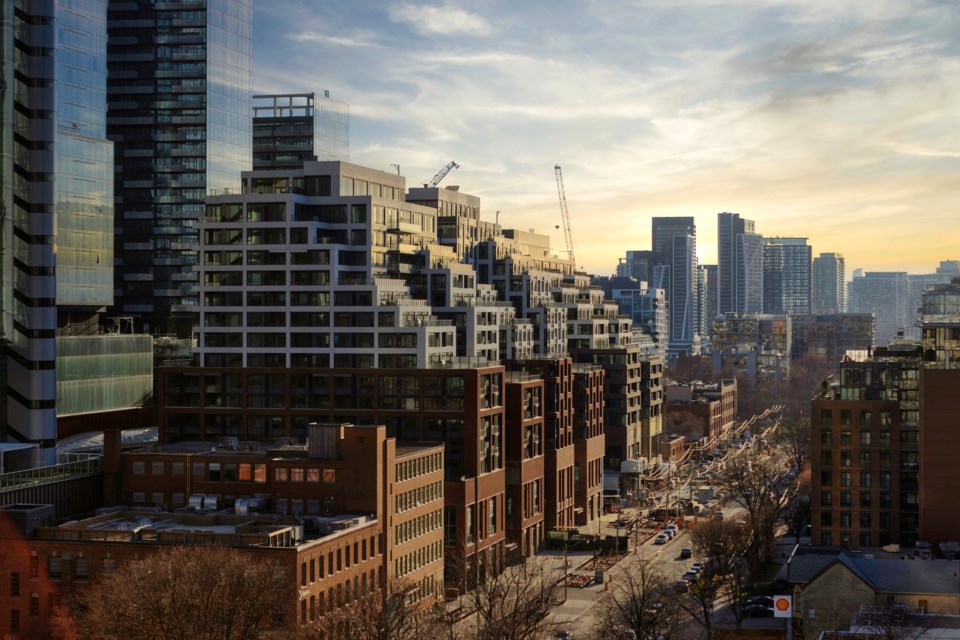Tenant lawyers and landlord advocates aren't known for getting along.
But many now agree it's time for Ontario to bring back in-person hearings to the Landlord and Tenant Board (LTB), which adjudicates disputes from non-payment of rent to evictions.
"The online hearings, rather counterintuitively, have slowed things down," said Kevin Costain, a board member at Small Ownership Landlords of Ontario (SOLO).
"Many of these adjudicators are not very tech savvy," he said, adding that roll call can take 20–30 minutes and some adjudicators struggle to open PDFs.
"Don't shut down the the online hearing blocks — keep them going. But also do in-person hearings," he said.
Advocates say seniors, low-income tenants and those with mental health struggles are often at a disadvantage due to tech and internet issues.
The Advocacy Centre for Tenants Ontario, which has long advocated for the return of real-life hearings, found in 2021 that more than half of tenants called in to hearings, compared to just over a quarter of landlords.
"So there's a black screen in front of the adjudicator," ACTO's director of advocacy and legal services Douglas Kwan said. "When they're disputing an issue and hoping to get some remedy, some justice, they're appearing before the Landlord and Tenant Board on unequal ground."
Ontario moved to an online LTB system in 2020 due to the COVID-19 pandemic. But years later, it hasn't returned. Parties can still request to have their dispute heard in-person, but an ombudsman report from 2023 found only about 10 per cent of in-person hearing requests were okayed.
Costain said landlords don't even try anymore.
"When they deny 80 per cent or more of them, why would anybody request it anyways?" he said.
So far, the government hasn't budged.
Tribunals Ontario told The Trillium last month that it "does not intend to return to default in-person hearings, as our user experience and feedback to date show that a digital-first strategy is more efficient and aligned with what our users have come to want and expect."
Some cities are also pushing for a return to real-life hearings. Last November, Chatham-Kent's council sent a letter to Premier Doug Ford and Housing Minister Paul Calandra calling for the change.
"Chatham-Kent is largely rural and many tenants and landlords do not have access to high-speed internet, a computer, transportation out of the community, or the skills to navigate this complex and technical new system," reads the letter, signed by the mayor and council members.
Earlier this year, Hamilton city council endorsed a motion from Mississauga calling for the same thing.
Many tenants struggle with English or French, and some may not be able to call in from home due to intimate partner violence, the motion noted.
Without easy access to LTB staff, tenants can make simple mistakes in their disputes — and "hallway conversations" between lawyers that were often able to bypass adjudication are no longer possible, Mississauga added.
Mississauga and Chatham-Kent also took issue with a lack of regional scheduling, meaning adjudicators heard cases from around the province instead of being able to "understand the local housing conditions and become familiar with the parties in order to issue just decisions."
Adjudicators could see that, for example, "there's three landlords in this community, and if you're evicted by one of them, chances are you might not be accepted as a tenant by the other two, which effectively evict you from the whole community," Kwan said.
Not all landlords are in agreement.
Online hearings are more efficient for those representing themselves — who can log on from a break at work — and who otherwise don't want to travel, said Asquith Allen of the Federation of Rental Housing Providers of Ontario, which advocates for small and corporate landlords.
Hallway conversations can be replicated in videoconferencing breakout rooms, he said.
The Ford government's doubling of adjudicators might mean some need more time to get up to speed, he added.
Delays at the LTB led to tenants living in mouldy apartments for months and landlords being forced to live in their cars, Ontario's ombudsman found in a report released last year.
Things have improved since then.
As of March 2023, the LTB's backlog stood at about 53,000 cases. After the government doubled the number of full-time adjudicators, it's now under 50,000, Attorney General Doug Downey said last month. He added that 50 per cent of applications are scheduled within five months — a big improvement on the two-year-long waits of yesteryear.
Allen said his members have noticed the improvements.
"We do still have anomalies where things are outstanding for some time, particularly on arrears, into the tens of thousands. But that's definitely not as popular of an anecdote as it once was," he said.




